 Written by Mike DeWilde, OTR/L
Written by Mike DeWilde, OTR/L
As a biological necessity that promotes optimal physical and mental health, the essential function of sleep is especially important for those of us recovering from an injury. People who are required to wear a neck brace or cervical collar, however, often quickly find that wearing one while lying in bed can be a bit uncomfortable - which may lead to loss of healthy sleep.
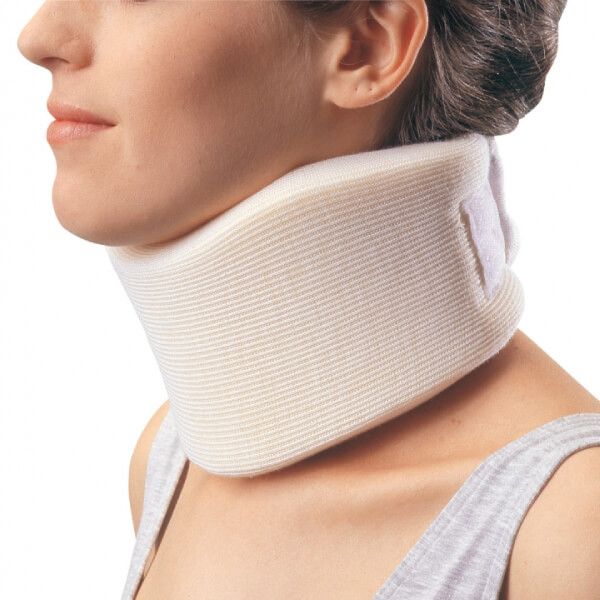
Fortunately, there are a number of effective tips for getting a good night’s sleep while wearing a neck brace, ensuring maximum comfort, deeper sleep, and faster recovery. Read on to learn how you or a loved one can improve your sleeping experience for the best cervical health outcomes.
Although most medical professionals recommend lying on your back as the best position for sleeping when you’re wearing a neck collar brace, you may find that with the right support, you are more comfortable sleeping on your side. As with any side-lying position, the head, neck, and shoulder should be aligned with the body. A folded or rolled-up towel can be placed on top or inside the long edge of the pillowcase for a firmer surface against the side of the face and head to improve support and alignment. Pillows can also be placed between the knees and underneath the arm coming over the body to further ensure proper body alignment.
Choosing a good quality neck brace will make all the difference between being able to sleep while wearing it or not. Poor design and cheap construction can not only adversely affect your sleep quality, but also the brace’s functionality and support when you’re wearing it during the day. Utilizing a well-designed and formulated neck brace like the Aspen Vista TX Neck Support Collar is especially recommended for attaining optimal sleep.
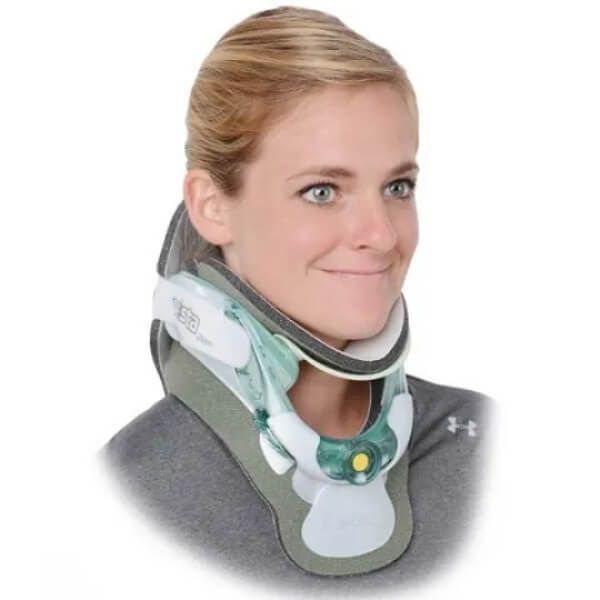
Conveniently adjustable, the Aspen neck brace maximizes user comfort with its cotton-lined Aspen pads that wick away moisture from the skin along with its clickable polyurethane foam to assure unrivaled pressure distribution. Providing significant motion restriction by acting as a kinematic restrictor and indicated for conditions such as decompressive procedures, fracture management, cervical disc syndrome, and post-surgical stabilization, the award-winning Aspen Vista TX is the ideal neck brace for sleep support and everyday wear.
If you prefer to sleep on your back while you wear a neck brace, you may want to consider switching to a thinner pillow or going without it altogether. Standard pillow designs may be too large, firm, or fluffy, leading to misalignment that usually results in pain and discomfort. Experts recommend trying to go without a pillow for a few nights to see if it helps reduce neck stiffness and pain. Stiff or firm pillows often cause unwanted discomfort as well, so it’s best to select thin foam pillows to maximize comfort for better sleep and quicker recovery.
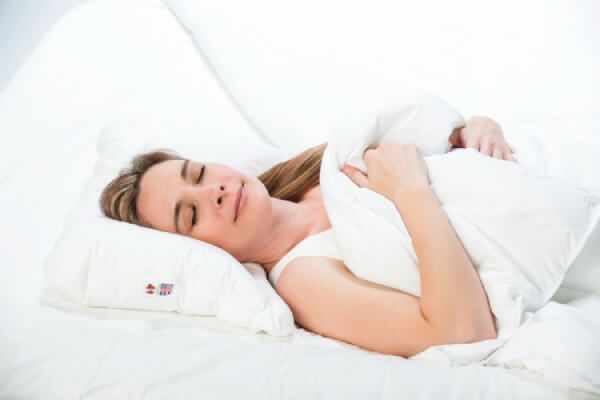
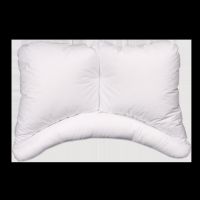 | CervAlign Cervical Neck Alignment Resting Pillow by Core Products View Product |
A recliner chair can provide a comfortable sleeping support option for people wearing neck braces - it’s actually the preferred option following neck surgery. Because it’s adjustable, a recliner is often more comfortable to sleep in with a cervical neck collar, just be sure you have some good lumbar support to mitigate any lower back pain. The neck brace prevents your head from falling forward, and a small flat pillow can provide support from behind.
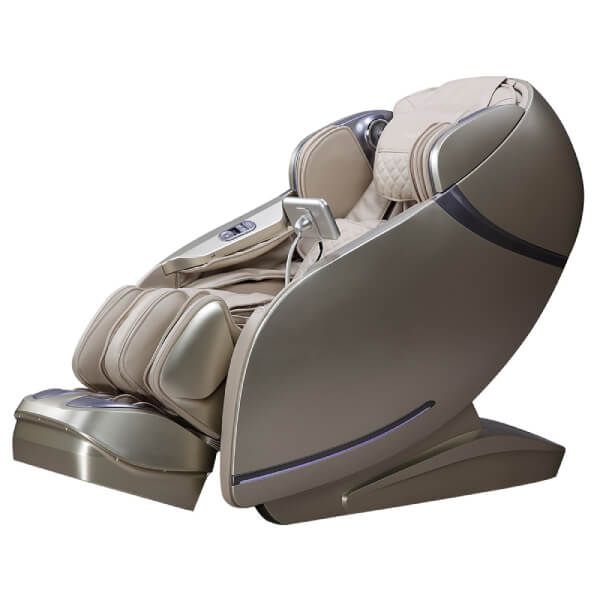
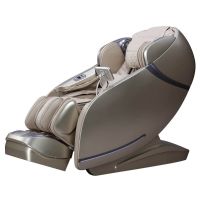 | Massage Chair and Recliner, 23 Auto Massage Types with Touchscreen Remote, USB & Bluetooth Compatible, Osaki Pro First Class by Titan View Product |
Reducing or eliminating smartphone, TV, and computer use at least 2 hours before bedtime can help you get better sleep, along with keeping the bedroom dark and cool. Other viable tips for getting to sleep and staying asleep when you’re wearing a neck brace include natural, non-toxic and non-invasive therapies, such as white noise, melatonin supplements, weighted blankets, and specially designed sensory bed sheets.
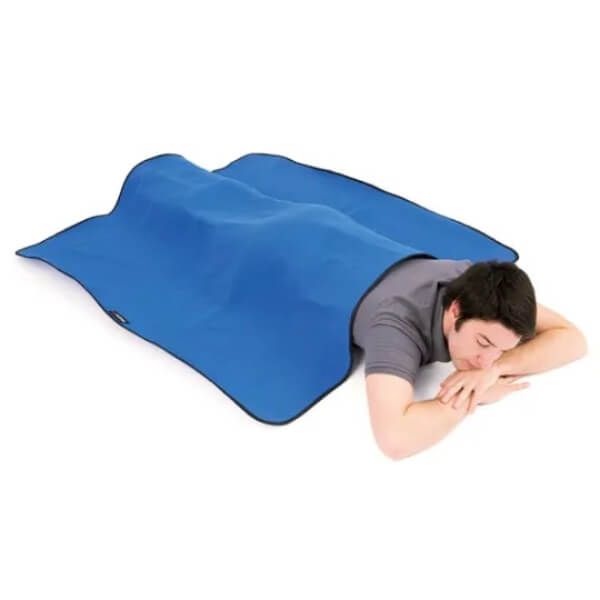
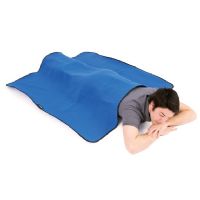 | Even Weighted Blankets for Soothing Effect View Product |
Recent studies have shown that white noise positively affects sleep, with 38 percent of adults falling asleep faster. Melatonin, a naturally occurring hormone, helps to regulate normal wake/sleep cycles but depletes as we get older. Taking melatonin supplements assists many people to achieve deeper, longer sleep. Weighted blankets optimize relaxation by reducing stress and anxiety via deep pressure stimulation, helping you to fall asleep faster and stay asleep longer. At the same time, sensory compression bed sheets also provide deep touch pressure therapy to promote a better night’s sleep as well.
Researchers have found that non-restorative sleep is the strongest independent predictor of widespread pain onset in adults over age 50. When people don’t sleep well, they usually experience more pain with headaches, aching joints, and tight muscles. People living with other chronic pain in addition to the pain they experience with their neck injury or condition may find it hard to get to sleep at all. In addition to the other helpful tips to achieve better sleep that we already shared, including methods for pain management will help to retrain your brain with healthy thoughts and behaviors.
Practicing effective therapies like mindfulness techniques, meditation, deep breathing, and guided imagery can help your brain re-conceptualize the pain in a way that’s easier to deal with, reducing nervous system aggravation through relaxation. Other natural approaches like massage therapy, aromatherapy, homeopathy, and natural pain relief products offer effective pain relief as well.
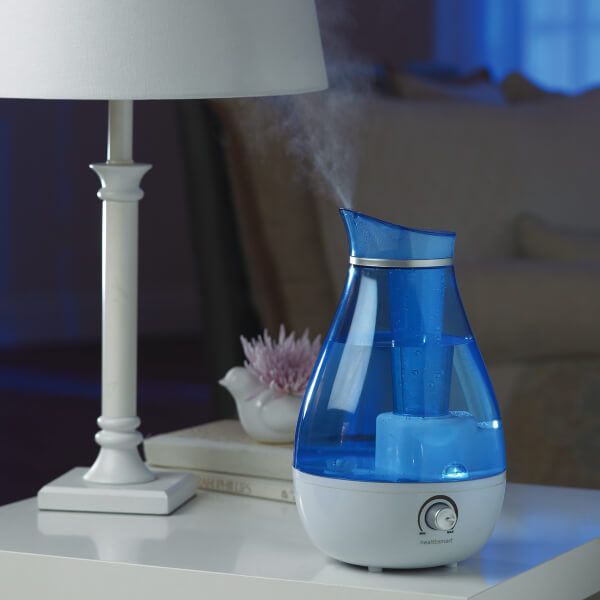
Sleeping with a neck brace does not have to be a pain in the neck! There are various practical ways to enhance comfort, reduce pain, and enjoy deep, rejuvenating, and healing sleep while you recover from a neck injury or condition. We also recommend the innovative and award-winning Aspen Vista TX Neck Support Collar as one of the most comfortable neck braces to wear, especially while sleeping.
Thanks for reading and learning more about how to sleep with a neck brace. We invite you to check out more helpful informational articles on our Caregiver University blog. Our extensive product buying guides provide comprehensive information that will help you determine the best medical equipment to meet your unique needs.
>> Shop Neck Support <<Mike DeWilde is an occupational therapist in the acute hospital and inpatient rehabilitation settings. He has experience working with a wide range of patients from all walks of life, and he is especially skilled in helping people recover from traumatic and neurological conditions. He’s also trained in the outpatient mental health setting, working with veterans in addiction recovery and holistic health improvement. Mike is motivated in helping drive future improvements to our health care system, such as the development of preventative health programs.